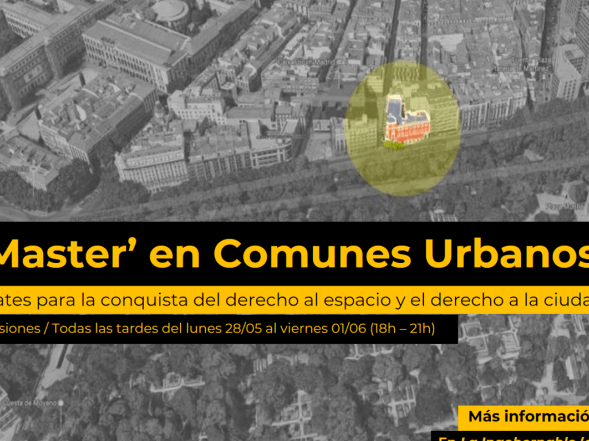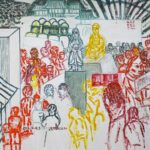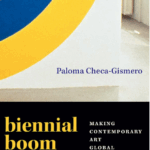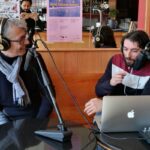Spain Is Making Its Tomorrow
Alan W. Moore
I am not dissatisfied, but rather optimistic about how the post-15M municipalist movement has been playing out in Spain. I arrived over 10 years ago to study squatting in Europe with a group of researchers and activists. That movement has continued strong, and morphed considerably in Spain after the 15 May 2011 occupation of the enormous Puerta del Sol square in Madrid, and the assemblies which spread throughout the city and the country thereafter. That political mobilization against austerity, called 15M, is the root of both Podemos and the municipalist electoral platforms in Spain, which have sought to capture city councils and mayoralties.
The autonomous movement of social center squatting today is strongly conceptualized, well-organized and well-led. Occupied social centers (OSCs) run by assembly are widely recognized as cornerstones of many of the municipalist electoral platforms in cities. They are the places where organizing happens.
The political aggregations called municipalist have all kinds of local complexions. Podemos supports them – and OSCs to some extent – on the national level. With the recent fall by censure of the right-wing PP national government in early June of 2018, Spain now has all socialist party ministers (PSOE), although still no parliamentary majority. Repressive PP laws remain in place, and there is great anger and concern over the repression of speech authorized by those laws, and the continued imprisonment of some Catalan independentista leaders. That whole mishegoss has, on balance, sidelined much of the progressive agenda of Barcelona en Comú in particular, and advantaged rightist nationalists on both sides of the issue, helping to enfever and distract the public from both sides’ long history of corrupt dealings.
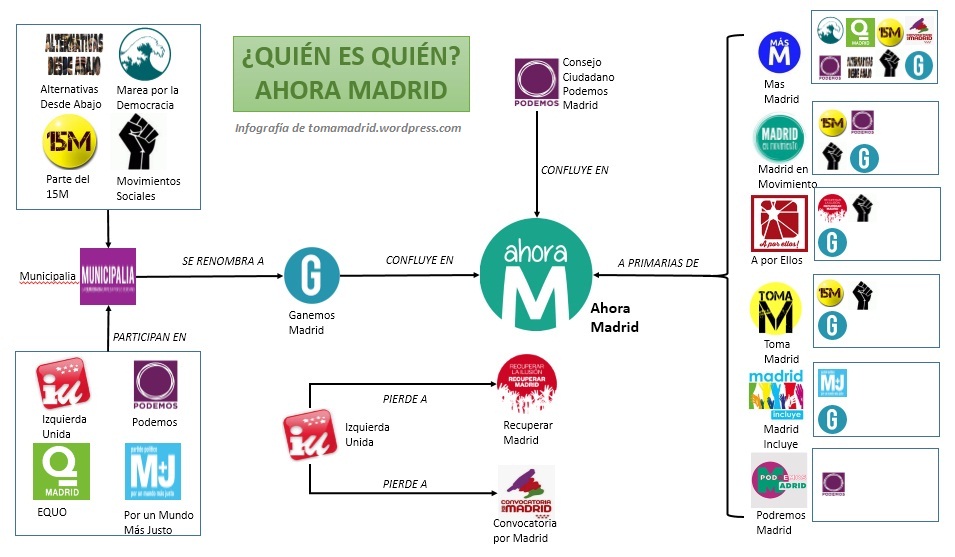
The mayoralties of Barcelona en Comú and Ahora Madrid, as well as many other cities in Spain with municipalist governments, have launched citizen participation platforms online. Decidim and Decide Madrid, both run open source Consul software, and put both small and large infrastructure projects to a vote of any interested citizens. They also provide formats for proposals to be made, commented and advanced to implementation. Madrid invests city resources in other participatory strategies, trying to animate a citizenry accustomed to opaque top-down governance. (I discuss these tactics in two recent articles online; for the deep, inventive ideology behind them, see Rubio-Pueyo’s text. All are cited below.)
Co-ops, solidarity economies, and co-housing projects of all kinds are active as well as migrant support, Afro and Roma consciousness groups, and many other collective formations (Gutiérrez, 2017). Both Madrid and Barcelona have hosted numerous official conferences on questions around the municipalist project and its platforms. Another regular conference series, called MAC (for Municipalismo, Autogobierno y Contrapoder) runs alongside these as a critical counterpoint. (I have blogged reports on many of these meetings at “Occupations & Properties.”)
Of the official meetings, Barcelona en Comú has been the more evangelistic with their Fearless Cities series in foreign towns, while Ahora Madrid puts its energies into vetted conferences of expert culture hosted by the ever-expanding Medialab Prado. Irritation is growing with this strategy, and more commotion is apparent in the autonomous political and cultural world. The clearest sign of this is the life of La Ingobernable, an abandoned school in central Madrid occupied in Spring of 2017. La Ingob immediately became a focal point for the city’s autonomous movements, visited by activists from all over the city. The long-term desire of squatting activists for a place in the center of the city had been fulfilled, and so far the city government has let them be. In addition to its own numerous project groups, La Ingob as a venue is already integrated into the cycle of conferences and meetings in the city, serving as a kind of punk annex to the Medialab a block away. They often run open hacklabs simultaneously with Medialab’s conferences.

This ferment is splendid. I mainly wish for more interest in and support for international solidarity and exchange, that is, an enrichment of the cultural stream with more explicitly political content and intention from outside Spain.
There is a problem I have also seen in USA: the democratic left gets the job of cleaning up the mess made by the vampires who went before. (At least in Spain, a gaggle of the worst are in jail now.) So, rather than attend to cultural affairs, and building civic imagination, the new left platforms have sought first to roll back years of neoliberal privatization, a process they call “remunicipalization” of public services, and put a halt to pork barrel projects put in motion by the right wing. With public housing, health and welfare, anti-racism, gender equity and protection – their plates are full. The “art” they want is counter-propaganda, to stave off “culture wars” type attacks from the right-controlled media. The cultural agenda of the new parties, such as it is, can seem now even more conservative, more “family friendly” and fiesta-oriented than before, when they squirmed under right wing governance. Strong political flavor in culture continues to arise outside institutions. Of course they do plant more trees.
There are attempts to “deterritorialize” art institutions – part of the “alter-institutionality” which Marco Baravalle describes – but these are embedded initiatives with vetted and paid participants, and don’t appear to reverberate much beyond the art sphere. As part of my devotion to conferencing, I attended a meeting of a so-called Institute of Radical Imagination in Madrid (Marco was also present), but what was going to happen, what was proposed by different participants, I was not able to learn. Talk happened, that’s certain.
At least – and it’s a lot – there is learning. Both major museums in Madrid and Barcelona continually mount stimulating exhibitions of art past and present with strong political and collective content. As an expat Newyorquino, I hardly miss the object-centric, private collection valorizing programs of the MoMA and Whitney.
Alan W. Moore lived 30 years in NYC. He worked with the artists’ groups Colab and the cultural center ABC No Rio. He took a PhD in art history from CUNY in 2000, and published “Art Gangs: Protest and Counterculture in New York City” (Autonomedia, 2011). Since 2009 he has researched the squatting movement in Europe, publishing “Occupation Culture: Art & Squatting in the City from Below” (Minor Compositions/Autonomedia, 2015) and co-editing “Making Room: Cultural Production in Occupied Spaces” (JoAAP/Other Forms, 2015). He blogs at Occupations & Properties. He lives in Madrid and Milwaukee.
More by Alan W. Moore
“How To Do Now” — a hyperlinked discussion of municipalism in Europe, for Lumpenmagazine #130, Fall 2017 (Chicago)
“A Municipalism Bibliography”, posted January 2018 by Llano Del Rio Collective, Los Angeles; in print from Minneapolis Municipalist Research Group
See also
Bernardo Gutiérrez, Pasado mañana: Viaje a la España del cambio (Arpa, Madrid, 2017) for optimism (ESP)
Vicente Rubio-Pueyo, “Municipalism in Spain; from Barcelona to Madrid, and beyond,” pamphlet online from Rosa Luxemburg Foundation, NYC, 2018 (ENG/ESP)

